Final article in a four part series considering uses of medicinal cannabis
Legal framework
In the UK, there are two key pieces of legislation related to cannabis:
- The Misuse of Drugs Regulations 2001 (‘the 2001 Regulations’) which provides the legal framework for access to controlled drugs for legitimate purposes. Cannabis is a controlled drug under the 2001 Regulations.
- The Misuse of Drugs Act 1971 (‘the 1971 Act’) legislation which is used to control prohibited drugs in the UK. The Act makes it illegal for people to possess, supply, produce, or import/export controlled drugs. The 1971 Act includes provisions for dividing illegal drugs into three classes: A, B and C. The classification of illegal drugs is according to their relative harmfulness when used and the classes carry different levels of penalty for possession and dealing.Cannabis is listed as a class B substance under the Act. Possession of cannabis carries a penalty of up to five years in prison, an unlimited fine or both. The penalty for supplying cannabis can result in up to 14 years in prison, an unlimited fine or both. It is unlawful to possess, supply, produce, import or export cannabis except under a Home Office licence. It is also an offence to cultivate any plant of the genus Cannabis except under a Home Office licence.
The classification of cannabis is completely separate from its scheduling. Cannabis (the plant material, excluding the stalks and seeds), cannabis resin, cannabinol and cannabinol derivatives were listed under Schedule 1 of the 2001 Regulations. These definitions cover, amongst other chemical constituents, the cannabinoid THC.
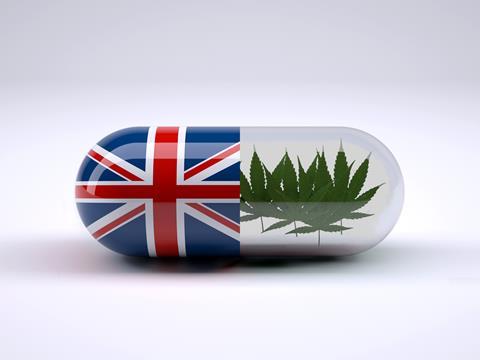
Following the rescheduling of cannabis under The Misuse of Drugs (Amendments) (Cannabis and Licence Fees) (England, Wales and Scotland) Regulations 2018 (‘2018 Regulations’), the Misuse of Drugs Regulations 2001 (S.I.2001 / 3998) was amended to allow unlicensed cannabis-based products for medicinal use in humans.
With effect from the 1 November 2018, Cannabis Based Medicinal Products for Use in Humans (‘CBPMs’) are listed in Schedule 2 of the 2001 Regulations. Changes to these regulations has meant that cannabis based medicinal products can be prescribed under certain circumstances. Only forms of cannabis and the associated controlled products which meet this definition will fall into Schedule 2. The legislative controls apply to cannabis plants cultivated for the production of drug material (e.g. hemp fibre or oil).
Under the amended 2001 the Government has defined CBPMs as:
““cannabis-based product for medicinal use in humans” means a preparation or other product, other than one to which paragraph 5 of part 1 of Schedule 4 applies, which—
(a) is or contains cannabis, cannabis resin, cannabinol or a cannabinol derivative (not being dronabinol or its stereoisomers);
(b) is produced for medicinal use in humans; and—
(c) is—
(i) a medicinal product, or
(ii) a substance or preparation for use as an ingredient of, or in the production of an ingredient of, a medicinal product;”;
CBPM relates only to cannabis and cannabis preparations (such as extracts from cannabis as well as cannabinoids isolated from cannabis). It does not include synthetic versions of naturally occurring cannabinoids (e.g. Dronabinol) or any non-natural cannabinoids obtained by chemical synthesis (nabilone). The authorised product, Sativex (the substance controlled in paragraph 5 of part 1 of Schedule 4 of the 2001 Regulations) is also exempt.
There are three access routes available for the order and supply of Cannabis Based Medicinal Products for Use in Humans (‘CBPMs’) for administration:
- an investigational medicinal product without a marketing authorisation that is for use in a clinical trial
- a medicinal product with a marketing authorisation
- a special medicinal product (Specials) that is for use in accordance with a prescription or direction of a specialist medical practitioner
All above access routes do require authorisation before implementation. Different forms of cannabis preparations and cannabinoids for medical use is that they either have a marketing authorisation for medical use or they do not.
Obtaining Marketing Authorisaion
In order to obtain marketing authorisation, an application for a medicinal product is submitted to the regulatory authority and, after evaluating the application, the regulatory authority grants authorisation.
This usually implies that the product went through extensive clinical trials and that the drug has been tested for safety, efficacy, and side effects. Regulatory authorities also consider whether the product can be manufactured to a required level of quality.
Changing CBPMs to Schedule 2 permits those cannabis-based products to be prescribed medicinally where there is an unmet clinical need and to be available under the provisions for ‘Specials’ under Regulation 167 of the Human Medicines Regulations 2012 which allows the exemption from the requirement for a medicinal product, placed on the market in the UK to hold a marketing authorisation. This exemption emerges from Article 5(1) of Directive 2001/83/EC, which states:
‘A Member State may, in accordance with legislation in force and to fulfil special needs, exclude from the provisions of this Directive medicinal products supplied in response to a bona fide unsolicited order, formulated in accordance with the specifications of an authorised healthcare professional and for use by an individual patient under his direct personal responsibility.’
CBPMs for administration are subject to specific access restrictions (new Regulation 16A of the 2001 Regulations) over and above the requirements applicable to other Schedule 2 drugs.
Licensing and registration
The regulation and licensing of unlicensed CBPMs in the UK are undertaken by the Home Office, DHSC (Department of Health and Social Care)and the MHRA. Cultivation of cannabis, regardless of THC content and/or medicinal purpose, can only be carried out under Home Office licence. A licence is required to cover both cultivation and possession.
Low THC cannabis grown for the commercial production of industrial hemp fibre or the pressing of seed for oil are purposes for which licences may be issued where- after harvesting on-controlled parts of the plant are used and controlled parts of the plant are retted at the licensed location or otherwise lawfully disposed of. Each grower must be individually licensed.
The 2001 Regulations, as amended stipulate that the prescriber must be a Specialist doctor registered on the General Medical Council (GMC) Specialist Register to be able to issue prescriptions for unlicensed CBPMs. The unlicensed CBPM is a ‘Specials’ medicinal product, formulated in accordance with the specifications of a Specialist doctor, and for use by an individual patient under his direct personal responsibility.
Once a substance receives Marketing Authorisation this prescribing restriction will no longer apply, and the product is available for patient use as other Schedule 2 drugs. As with other Schedule 2 drugs, organisations wishing to possess, supply, produce or manufacture these products will require a Home Office Controlled Drug licence to lawfully undertake these activities unless a limited ‘exemption’ applies. A Home Office licence will also be required to import or export these controlled drugs.
Unlicensed CBPM should not be supplied where a licensed medicinal product can meet the special needs of the patient. Responsibility for deciding whether an individual patient has special needs which a licensed product cannot meet should be a matter for the doctor listed on the GMC Specialist Register, responsible for the patient’s care. The requirement for a special need relates to the special clinical needs of the individual patient. It does not include reasons of cost, convenience or operational needs.
MHRA expects that documentary evidence that the requested supply is for clinical need that cannot be met by an unlicensed medicine be obtained by manufacturers, importers or distributors and that this evidence, e.g. a prescriber’s letter, should be made available on request of the Licensing Authority.
A fully documented audit trail through the supply chain confirming special need may be acceptable:
- To include clinical therapeutic use/clinical indications
- To understand why this product is chosen over licensed medicines
- Confirmation of the clinical indication for what the product will be used
- The decision to prescribe has been made by a doctor on the GMC Specialist Register
Procurement of unlicensed CBPMs in the UK can only be authorised to the following individuals:-
- Doctor named on the GMC Specialist Register
- Specialist Importer with a Home Office import and Domestic licence and MHRA licence
- Registered pharmacies or retail pharmacy businesses (with Home Office Domestic licences, where appropriate)
- Licensed wholesale dealers for supply to the order of any of the above
Supply, manufacture, importation and distribution
The manufacturer or assembler of “specials” must hold a Manufacturer’s “Specials”
Licence granted by the MHRA Licensing Authority.
The manufacturing/assembly site and its operations will be inspected for compliance with
Good Manufacturing Practice (GMP) and the conditions of the licence which require manufacture or assembly carried out under the supervision of appropriately qualified staff, including a named quality controller and production manager acceptable to the Licensing Authority.
However, a Qualified Person (QP) is not required to be named on a Manufacturer’s “Specials” Licence for release of a finished unlicensed product.
GMP is the minimum standard that a medicines manufacturer must meet in their production processes. Products must:
- be of consistent high quality
- be appropriate to their intended use
- meet the requirements of the marketing authorisation (MA) or product specification
Good distribution practice (GDP) requires that medicines are obtained from the licensed supply chain and are consistently stored, transported and handled under suitable conditions, as required by the MA or product specification.
Organisations that may have to comply with GMP and/or GDP include:
- manufacturer licence holders
- wholesale dealer licence holders
- blood establishment authorisation holders
- non-UK sites employed by UK MA holders
MHRA carries out inspections to check if manufacturing and distribution sites comply with GMP or GDP. You will be inspected when you apply for a manufacturer or wholesaler dealer licence and then periodically based on risk assessments. Overseas manufacturing sites are also inspected.
However, companies wishing to possess, supply, produce, manufacture and/or import/export these products will require Home Office controlled drug licences to lawfully undertake these activities, unless a limited ‘exemption’ applies to that licensing requirement. For example, a community pharmacy simply possessing a product for the sole purpose of dispensing to an individual patient may not require a licence to do so.
Cultivation of cannabis, irrespective of the THC content, remains an offence under section 6 of the Misuse of Drugs Act 1971 unless under a Home Office license issued under regulation 12 of the Misuse of Drug Regulations 2001.
The ‘industrial hemp’ licensing cultivation policy does not enable the use of ‘green’ or controlled materials (that is, the flowers and/or leaves) and is not applicable in these circumstances. Any proposal to cultivate cannabis materials to produce a Schedule 2 CBPM will be individually considered on its merits and considered in accordance with the general drug licensing risk assessment process and other applicable regulatory considerations.
The Specialist Importer of an unlicensed CBPM into the UK must hold either a Wholesale Dealer’s Licence (WDA (H)) if the product is to be imported from an EEA member state i.e. the EU plus Norway, Iceland and Liechtenstein, or a Manufacturer’s (Specials) Licence if the product is to be imported from a third country i.e. a non-EEA country; and, the Specialist Importer must notify the MHRA at least 28 days before the date of the intended import stating:
- the name of the product, which may be the brand name, common name or scientific name under which it is to be sold or supplied.
- any trademark or name of the manufacturer.
- the International Non-proprietary Name (INN), British Approved Name (BAN) or other monograph, scientific name or description of the true nature of each of the constituents.
- The quantity to be imported which will be the quantity as written on the prescription
- The name and address of the manufacturer or assembler of the medical product, or the name and address of the supplier if not the manufacturer or assembler.
For a CBD and other cannabinoid products to be legally available for human consumption it needs to either meet the Exempted Product Criteria in Regulation 2 of the MDR 2001 (see below) or the definition of a CBPM in Schedule 2 to the MDR 2001 (see above) for its possession to be lawful.
Exempted products
The ‘exempted product’ definition – Regulation 2 of the MDR 2001 is as follows:
Regulation 2 (Interpretation) of the 2001 Regulations provides that some products may, in limited circumstances, be considered ‘exempt’ from control, notwithstanding their ‘controlled drug’ content.
The regulation sets out:
An “exempt product” means a preparation or other product consisting of one or more component parts, any of which contains a controlled drug, where—
- the preparation or other product is not designed for administration of the controlled drug to a human being or animal
- the controlled drug in any component part is packaged in such a form, or in combination with other active or inert substances in such a manner, that it cannot be recovered by readily applicable means or in a yield which constitutes a risk to health
- no one component part of the product or preparation contains more than one milligram of the controlled drug or one microgram in the case of lysergide or any other N-alkyl derivative of lysergamide.
To meet the criteria of an exempted product all three limbs of the definition must be met.
Home Office licences
Home Office policy instructs that licences may be issued for the cultivation of cannabis plants with a low THC content for the production of hemp fibre for industrial purposes or the obtaining of seeds which are then pressed for their oil. For both of these uses, licences are granted to enable the use of non-controlled parts of the plant (i.e. seeds and fibre/ mature stalk only). This is only applicable where non-controlled parts of the plant are used.
The commercial end use must be well-defined and the Home Office only issues licences for cultivation of plants from approved seed types with a THC content not exceeding 0.2%. The ‘0.2%’ reference is used solely to identify varieties which may potentially be cultivated and to differentiate between the licencing fee levels.
The Hemp (Third Country Imports) Regulations 2002 also require, except in specified circumstances, that hemp from ‘third countries’ be imported under a licence and, in the case of hemp seeds other than for sowing, under an authorisation. If a product containing controlled cannabinoids (e.g., THC) or any other controlled substance(s) is imported from the EU, USA, or any other part of the world, then there is a requirement to obtain a Home Office controlled drug import licence to legally undertake this activity.
CBD considerations
CBD as an isolated substance, in its pure form, would not be controlled under the Misuse of Drugs Act 1971 / 2001 Regulations. If a CBD ‘product’ contained any controlled cannabinoids, unintentionally or otherwise (e.g. THC or tetrahydrocannabivarin (THC-V)), then it is highly likely that the product would be controlled. It can be very difficult to isolate pure CBD, and many products in fact do not fully disclose their contents or provide a full spectrum analysis at an appropriate level of sensitivity to accurately and consistently determine their true content or control status.
Against this background, the presumption has to be one of caution – that is, that a CBD containing product would be controlled under the MDA 1971 / MDR 2001 as a result of its other cannabinoid content.
Clinical and/or medicinal benefits
In addition to any issues associated with controlled substance content, cannabis/cannabis extract products may also need to satisfy other regulatory requirements if clinical/medicinal benefits are claimed. In this respect, companies may wish to contact the MHRA for their view on whether these products are additionally subject to their licensing regime and control.
The Home Office government department assessment is that the ‘exempted product’ definition may apply to drug preparations or products in any form- for example an Active Pharmaceutical Ingredient (API) or a medicinal product in Finished Dose Form (although it is highly likely that in a ‘bulk form’ the 1mg threshold would cease to be met).
To establish that the definition is met, testing e.g. a full spectrum analysis to the appropriate threshold by an independent and licensed UK company, and providing a full and independent certifiable information and research of an appropriately rigorous nature will be required.
It is likely that the product will be subjected to regulation as a medicinal product (or to an equivalent UK regulatory standard) to demonstrate that there is no intention of administering the controlled drug element of the product (referred to in (a)). The purpose and intended method of administration of a product may affect this.
It is the Home Office’s view that the applicable unit of measure for the 1mg ‘threshold’ referred to in (c) part of the definition is that of the ‘container’ (i.e. bottle or packet) and not the ‘typical dose’ (of any product).
This is the fourth, and final, article in this series.
Reproduced with kind permission of Woodley BioReg — the views expressed in this article are those of the authors and do not represent those of Regulatory Rapporteur or TOPRA.



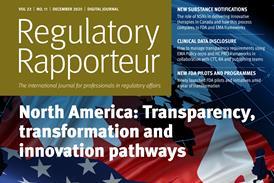
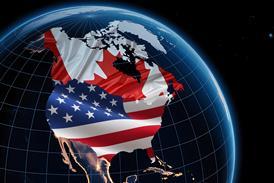







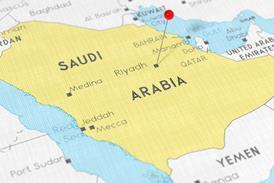

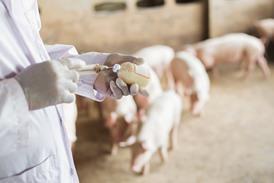








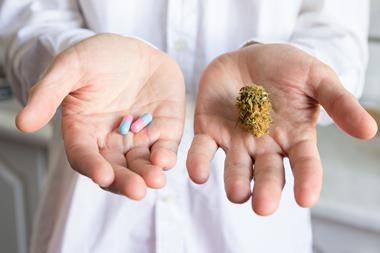

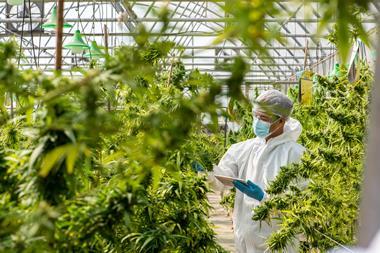
No comments yet